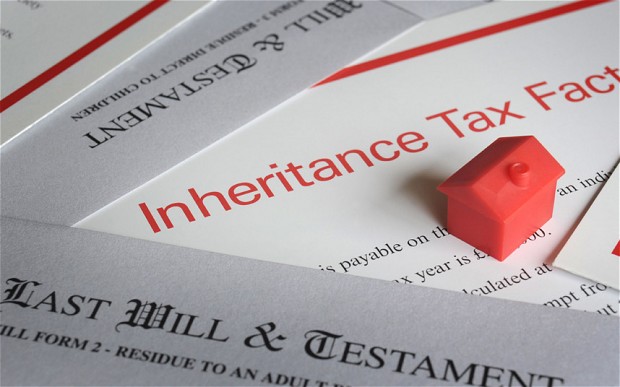Inheritance tax is a tax that you will have to pay if you are the recipient of a property or assets passed on to you by someone who has died. If you’re paying inheritance tax, then it means that family members or beneficiaries of your estate need to repay the government for any funds received from the estate (they are also entitled to some of the money spent from funds inherited from their family members). The process can be confounding – here’s how to reduce taxation!
Introduction to the Inheritance Tax
Inheritance tax is a tax that is levied on the inheritance that a person receives. It is usually payable by the person who inherits the money, or their spouse if they are married at the time of the inheritance.
There are several factors that will affect how much you will have to pay in inheritance tax. These include your relationship to the deceased, whether or not you are a UK resident, and the value of the inheritance.
If you are liable for inheritance tax, there are some things that you can do to reduce the amount that you will have to pay. This includes setting up a Will, ensuring that your assets are managed correctly, and filing an accurate return with your local tax office. By taking these steps, you can help to ensure that you pay as little inheritance tax as possible.
What Affects The Inheritance Tax?
1. The inheritance tax is a tax that is charged on the amount of money that a person inherits.
2. There are a number of factors that affect the inheritance tax. These include the value of the estate, the relationship between the deceased and the intestate, and whether any taxes have been paid in respect of the estate.
3. The inheritance tax is typically calculated as a percentage of the value of the estate. This percentage is determined by looking at how much of the estate has been left to the deceased’s surviving spouse, children, grandchildren, and other relatives.
4. If no taxes have been paid in respect of an estate, then the inheritance tax will be calculated as a percentage of the value of the estate, regardless of who may be entitled to receive it.
5. The inheritance tax is payable when an estate is settled or when an individual dies. It can also be prepaid if necessary.
Inheritance tax is a tax that is paid when someone passes away. There are a number of factors that can affect the inheritance tax that the person will pay.
The inheritance tax is based on a person’s net worth. This means that the more money the person has, the higher their inheritance tax will be. The estates of wealthy people usually have to pay the highest inheritance taxes.
There are also other federal, provincial, and local taxes that may be due on an estate. These taxes can add up to a large amount, and they can even exceed the inheritance tax that is paid.
It is important to understand what affects the inheritance tax, so you can plan your estate properly and minimize your overall tax liability.
Who Pays The Inheritance Tax?
When a person dies, the law says that their assets will be passed on to their heirs. This means that the person’s family members will be responsible for paying the Inheritance Tax.
The Inheritance Tax is a tax that is charged on assets that are passed on to someone when they die. In most cases, the Inheritance Tax is paid by the person who inherits the asset. However, there are a few exceptions to this rule.
If you’re the sole surviving heir of an estate valued at less than £325,000 (or €457,600), you don’t have to pay the Inheritance Tax. This means that your parents or any other adult relatives who are members of your family won’t have to pay it either.
Similarly, if you’re aged 16 or over and you’re caring for a relative who is disabled or elderly, you don’t have to worry about paying the Inheritance Tax. This applies even if your relative doesn’t have any assets.
So, if you’re worried about how your inheritance will affect your finances, take some time to talk to your family about it. You might be surprised at how well they’ll be able to cope without having to pay the
How To Reduce Your Risk Of Paying Inheritance Tax
1. One way to reduce your risk of paying inheritance tax is to make sure that you have a Will in place. This document will specify who will receive your property after you die, and it can help to reduce the amount of tax that you’ll have to pay.
2. You can also reduce your risk of paying inheritance tax by ensuring that all of your assets are transferred into your name as soon as possible. This will limit the amount of money that can be attributed to your estate and therefore reduce the amount of inheritance tax that you’ll have to pay.
3. Finally, if you’re using a trust to manage your assets, make sure that the trust is set up correctly. This will help to reduce the amount of Inheritance Tax that you’ll have to pay.
Tips for Reducing the Inheritance Tax
There are a few things you can do to reduce the inheritance tax you’ll have to pay. First, make sure you have enough assets to pay the tax. Second, try to reduce the amount of inheritance you receive. Finally, consult a lawyer to make sure your inheritance will be legal and avoid any taxes that may be due. To reduce the inheritance tax you will have to pay, make sure you have enough assets available to cover the tax. You can either sell off some of your assets or use them to pay down your debts. Additionally, Try to reduce the amount of inheritance you receive. It may be able to lower the value of the estate subject to Inheritance Tax. Finally, consult with a lawyer about any legal questions that may arise with your inheritance plan. Doing so can help ensure that your inheritance will be lawful and avoid any extra taxes that may apply.
There are a number of ways that you can reduce the inheritance tax that you’ll pay. Here are some tips that may help:
1. Draft a will. This will is important because it will determine who inherits your property, and how the property is distributed. It’s important to make sure that your will is valid and binding, and that you have the approval of all parties involved in your estate.
2. Avoid using assets in the estate that are exempt from inheritance tax. These assets include business assets, investments, and royalties.
3. Make sure that all income streams in the estate are taxable. This means that any income generated from investments or business assets in the estate should be included in your calculations. If there are any unexpected expenses when distributing the estate, be prepared to cover them with additional Inheritance Tax reliefs.
4. Reevaluate your estate plan regularly to make sure it remains sensible and tax-effective. The Inheritance Tax system is complex, and changes frequently Limited reliefs are available so make sure you’re fully aware of all options before making a decision about your estate plan
Alternatives to paying the inheritance tax
If you are worried about paying the inheritance tax, there are several options available to you. You can choose to gift your assets to your loved ones instead of paying the tax. Alternatively, you can use your assets to reduce your tax burden.
Here are a few tips to help you reduce your inheritance tax liability:
1. Make a Will: This is the most important step you can take in reducing the inheritance tax you’ll pay. If you make a will, it will ensure that all of your assets go to your loved ones free of tax. This is especially important if you are inheriting money from a deceased parent or spouse.
2. Use Charitable Gift Annuities: A charitable gift annuity is a great way to give money away without having to pay any taxes on the income received from the annuity. This type of annuity pays out a fixed sum of money every year, regardless of how much money is generated by the underlying investments. This makes it a good option if you want to give money away without worrying about losing out on potential income-generating opportunities.
3. Use Property: If you own property, you may be able to use it as security for a loan that
If you are planning to leave a large inheritance to your loved ones, there are several ways that you can reduce the amount of inheritance tax that you will have to pay. One option is to make a will or living will. This will ensure that all of your assets are transferred to your loved ones in the event of your death, without having to pay inheritance tax.
Another option is to convert your estate into a trust. A trust can be set up so that the money invested in it will be distributed according to the wishes of the trustor. This means that you will not have to pay inheritance tax on the value of the trust fund.
If you do not have any children or grandchildren, there may still be some options available to reduce the inheritance tax that you will have to pay. You could make a charitable donation in lieu of paying inheritance tax. Alternatively, you could give your property directly to the charity. Finally, you could make a grant in aid of a charitable organization. These types of donations will not be subject to inheritance tax.
Conclusion
If you’re a UK taxpayer, then you’ll need to be aware of the inheritance tax (IT) you’ll have to pay. In this article, we’ve outlined some tips that can help reduce the amount of IT you end up paying. Whether you are looking to create a dynasty or simply minimize your overall tax bill, take note of these tips and apply them in order to reduce your inheritance tax liability.








